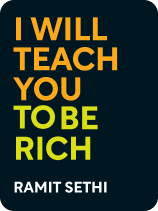

This article is an excerpt from the Shortform book guide to "I Will Teach You to Be Rich" by Ramit Sethi. Shortform has the world's best summaries and analyses of books you should be reading.
Like this article? Sign up for a free trial here .
Thinking of hiring a financial advisor to help manage your investment portfolio? Does one really need professional expertise to manage their investments?
If you’re not a personal finance expert, managing your portfolio might seem intimidating, and you may even be tempted to hire a professional financial advisor. However, unless your financial situation is especially complicated, you don’t need a financial advisor—you can get the same (or even better) results by managing your own investments, even without any special expertise.
In this article, we’ll see how financial “experts” are typically no better than amateurs when it comes to predicting the market or choosing where to invest—and how falling for their false expertise can cost you thousands in fees.
Financial Experts Rarely Beat the Market
When you think of a financial expert (or, more specifically, an investing expert), who do you think of? Most people picture one of two things: media pundits who make their living loudly predicting stock market trends on television, or mutual fund managers (people who choose how to invest the money in a mutual fund, which is a group of different stocks that make up a single fund people can invest in). In either case, their job is to “beat the market,” which means getting better-than-average returns by correctly predicting which specific stocks will rise or fall in value
We tend to put these people on a pedestal because we assume that their investing experience will equate to better financial returns. However, that’s rarely the case: Mutual fund managers only “beat the market” about 25% of the time. Even if they do manage to beat the market one year, that result typically involves more chance than skill—and they’re rarely able to replicate their success the next year, let alone for several years in a row. That’s because the stock market is an extremely complicated system by nature, so it’s nearly impossible to predict how it will change in the short-term.
To see how chaotic the market can be, consider this example: Back in 2008, if you had the option to buy stock in Google or in Domino’s Pizza, which would you choose? Most people would choose Google, and they’d see some great returns—between 2008 and 2018, Google’s stock tripled in value. However, in that same period, Domino’s Pizza’s stock grew to 18 times its 2008 value. That’s why fund managers can so rarely beat the market—it’s almost completely unpredictable.
Hiding Poor Performance
You might wonder why so many people put so much faith in pundits and fund managers when they have such a poor track record for predicting the market. There are a few reasons for this.
- First, many people make their investment decisions based on information from companies (like Morningstar) that rate various mutual funds based on their performance. If a fund is well-rated, the company advises investors to buy more shares (or hold onto their current shares). The problem with that is that these ratings don’t actually reflect a fund’s performance. One study even found that 47 out of 50 financial ratings companies told investors to buy or hold shares in mutual funds right up until the day the company in charge of the mutual fund filed for bankruptcy.
- Second, fund ratings are subject to survivorship bias because financial ratings companies can only rate funds that still exist, which means they’re automatically ignoring all the funds that performed poorly and ultimately closed down. In other words, if a mutual fund management company starts 20 new funds and only five produce better-than-average returns, the company will drop the 15 failed funds. Then, when companies like Morningstar rate that fund-management company based on how their funds perform, they only see the five successful funds, so the resulting rating gives a skewed picture of how well that company’s funds actually perform.
Understanding Financial Advisors
By now, we know not to rely on financial pundits or mutual fund managers, but deciding whether to rely on a financial advisor is a bit more nuanced. Financial advisors are professionals who make their money by advising people on how to invest given their individual needs and financial situation. If you’re overwhelmed by the idea of managing your own portfolio, you may be tempted to pay a financial advisor to take over for you, but remember—when you give up control of your money, you also give up the opportunity to create your own Rich Life.
In general, most young people can manage their own finances just fine without the help of a professional advisor. However, if you have a complicated financial situation (for example, if you’ve inherited a substantial amount of money or if you have dependents), a financial advisor can be helpful. If you decide to hire one, there’s a few things you’ll need to look out for:
- Look for “fee-only” advisors who charge a flat fee for their services and don’t make any money through commissions. That way, you can be confident that when they tell you to invest in a particular fund, it’s because that’s what’s best for you, not because it will make the most money for them.
- Ask any potential financial advisor if they’re a fiduciary (which means they are legally obligated to give you advice based on your own best interest instead of their own bottom line). If they’re not, you’re at risk of being scammed and should choose a different advisor.
Financial Independence
Managing your investments might ultimately be the most important part of your financial life because it can lead to financial independence. In personal finance, the term “financial independence” means that your investments completely cover your living expenses—meaning you no longer have to work if you don’t want to. The moment your investments start generating more money than your salary is called the Crossover Point. (Shortform note: The term “Crossover Point” was first coined by Vicki Robin and Joe Dominguez in their book, Your Money or Your Life. To learn more about financial independence and the Crossover Point, read our summary of Your Money or Your Life.)
When you reach the Crossover Point and no longer have to work for a living, you’re Financially Independent and Retiring Early (FIRE). FIRE can look different depending on your goals and lifestyle. For example, some people pursue “LeanFire,” which means they plan to live a modest lifestyle for the rest of their lives, so their investments only need to generate $30,000 to $50,000 per year to cover their expenses. On the other hand, there’s “FatFire,” in which people try to generate the highest possible net worth before retiring so that they can invest more and rake in higher returns.
For both FIRE styles, there’s a tradeoff between money and time: With LeanFire, you can retire earlier (often in your thirties or forties), but won’t be able to spend extravagantly; with FatFire, you’ll have to work longer, but you’ll be able to afford a lavish lifestyle once you do retire.
Remember: You get to choose what your Rich Life looks like and whether it involves reaching your crossover point. If so, you have a few options for how to achieve that goal: You can increase your income, reduce your spending, or try a combination of both. In the table below, see how each option changes how long it would take you to reach your Crossover Point (and how much you’d be able to live on in retirement) based on an income of $80,000 and $6,000 in monthly expenses.
| Strategy | Yearly Income | Monthly Expenses | Years to Crossover Point | Yearly Spending Allowance After Crossover Point |
| Save and invest 10% of income | $80,000 | $6,000 | 38 | $72,000 |
| Increase income by 30% | $104,000 | $6,000 | 22 | $72,000 |
| Reduce expenses by 50% | $80,000 | $3,000 | 12 | $36,000 |
| Increase income by 30% and reduce expenses by 30% | $104,000 | $4,200 | 9 | $50,400 |
Overall, setting FIRE as your goal can be a powerful way to increase your savings, but it’s not for everyone. Remember, a Rich Life is about more than money: If relentlessly cutting your spending or fretting over your investments is going to make you stressed and miserable, you may want to reconsider whether retiring early is worth that misery.

———End of Preview———
Like what you just read? Read the rest of the world's best book summary and analysis of Ramit Sethi's "I Will Teach You to Be Rich" at Shortform .
Here's what you'll find in our full I Will Teach You to Be Rich summary :
- The small steps you can take towards living a "rich life"
- How to choose the right bank account and manage your credit cards
- How to create a financial system that grows your money automatically






